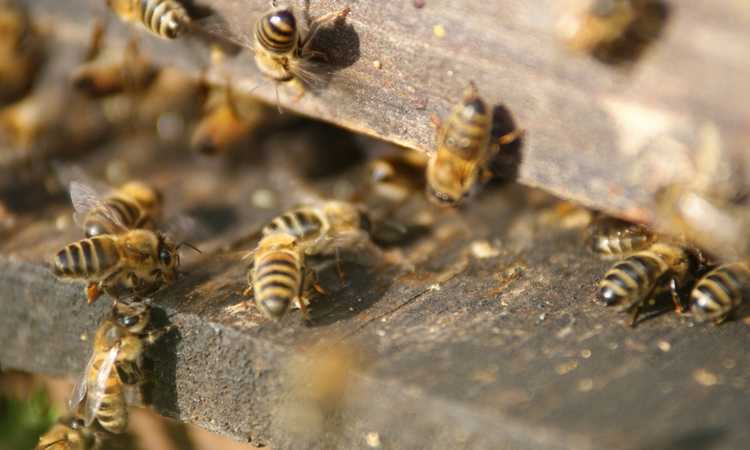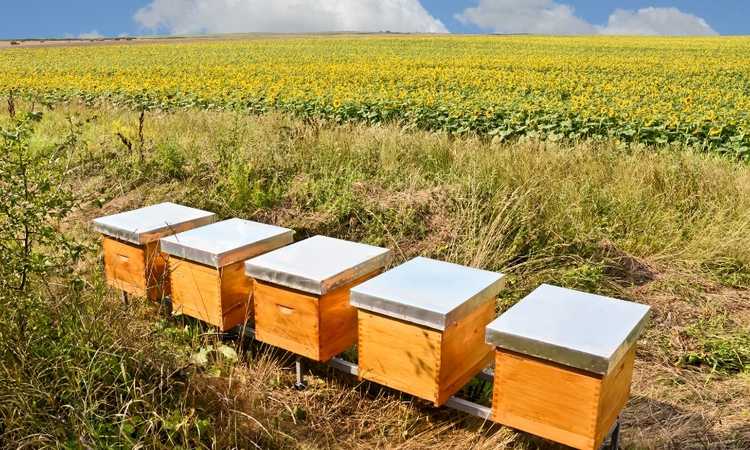Beekeeping is not only a rewarding hobby, but it also has many benefits for the environment. By keeping bees, you can help pollinate plants and flowers, producing healthier ecosystems. Beekeepers also produce honey, wax, and other bee products that can be used in a variety of ways. If you’re looking for a way to give back to nature and your community, beekeeping may be the perfect activity for you.
Beekeeping and its benefits
Beekeeping provides an exciting outdoor hobby for both casual nature-lovers and seasoned horticulturalists alike.
Keeping bees offers a wealth of benefits, from the therapeutic pleasure of spending time with the vibrant, buzzing insects to the honey harvests that production-minded beekeepers can enjoy. The practice is also immensely beneficial to our ecosystem, as bees play a crucial role in pollinating and producing plants found in all environments.
Not only do they contain unique components that are essential for pollinating flowers before they begin to blossom, but also help to disperse seeds during their routine copious visits among ancient flowers and trees. In addition, key honeybee chemicals are being studied with the potential to aid humans suffering from various ailments such as Alzheimer’s or cancer.
Finally, beekeeping can be seen as an opportunity to develop a healthier lifestyle—one in which a passion for nature and understanding its delicate balance is key. Beekeeping thus offers many rewards; it’s no wonder it has been popularized around the world!
How beekeeping can help the environment
Beekeeping is an activity with a wide range of environmental benefits. Not only do bees help to pollinate flowering plants – one of the most essential steps in the process of photosynthesis – but beekeeping itself has the potential to significantly reduce reliance on industrial-scale agriculture by providing an alternative source of food.
This practice can help conserve water, since beekeepers supplement their hives with supplemental sources in cases where there is insufficient natural nectar or pollen.
By reducing demand on other agricultural products, such as corn and soybeans, beekeepers also play an important role in preserving ecological diversity.
In addition, beekeeping presents unique opportunities for farmers to obtain sustainable yields through mutually beneficial relationships with local pollen and nectar producers — especially those practicing regenerative agriculture — promoting diversity within the landscape while avoiding potentially damaging pesticides and monoculture practices.
Beekeepers also have the opportunity to produce high-quality apiary products such as honey and propolis, which can provide health benefits.
All these factors make beekeeping an extremely valuable part of sustaining a healthy environment. No matter how large or small their hives may be, dedicated beekeepers can make a meaningful contribution towards protecting our planet for generations to come.
How honeybees produce honey and how it’s used
Honeybees are an integral part of nature, providing us with a highly coveted product: honey.
Honeybees turn the nectar of flowers into honey by repeatedly drawing the fluid in, secreting enzymes, then fanning it with their wings to reduce its moisture. This is then stored in wax cells within the hive. Honey itself provides vital nutrition to the hive in cold months when plants are not blooming and pollination is not possible.
But for humans, honey is much more than just a food source; it’s a delicacy that has been used in fine cuisines throughout history. From sweetening teas to adding sweetness to desserts, honeybee-produced honey not only imparts a unique flavor but it also contains powerful antimicrobial agents that help fight off infections and keep us healthy.
It can even be used as a natural preservative due to its low pH level which allows it to act as an acidifier to inhibit bacteria growth.
So while honeybees have been making their legendary sticky golden elixir since the dawn of time, they continue to offer us so much more than deliciousness – creating products that provide human health benefits every day.
Unlocking this potential is key to creating sustainable bee colonies that can outlast our rapidly changing world and provide us with endless possibilities for natural remedies and culinary endeavors!
The process of making beeswax and its many uses
Beeswax is one of the oldest natural materials known to people, dating back thousands of years.
Making beeswax starts with collecting honey from beehives. The honeycomb is removed and placed into a chamber called an extractor. The chamber is powered by centrifugal force which separates the wax from other substances, such as pollen and propolis, in the honeycomb. It gets solidified as it cools – either in liquid form or a solid slab – and then cleaned up for further use.
Beeswax has many uses beyond its original function; it can be used for candles, lubrication, waterproofing, modelling and sculpting, among other things. When combined with pine resin and animal fat, it makes an adhesive that was used widely in ancient times for waterproofing boats or joining pieces of pottery together.
For skincare applications – such as cosmetics or lotion bars – beeswax adds moisturization, antibacterial benefits, increases shelf life and provides a smooth texture that is often preferred over petroleum-based products. Whether used for practical applications or creative endeavors, beeswax continues to be crafted around the world due to its unique range of properties and desired effects.
Additionally, it has seen a surge in use since gaining popularity among modern artisans who frequently use this natural material. From keeping ancient vessels afloat to creating timeless works of art today , beeswax remains one of the most versatile materials out there!
Despite its extensive history as part of different cultures around the globe, beeswax still manages to surprise us with its potential uses – making it an essential part of our lives even today!

Some tips on getting started with beekeeping
Beekeeping is a great way to help protect and conserve at-risk pollinator populations, while also producing delicious honey.
If you’re interested in getting started with beekeeping, here is some advice for new beekeepers may help you start your new hobby: First of all, be sure to do your research — it’s important to understand what type of role you’ll play as a beekeeper, and the basic biology and life cycles of bees so you will know how best to care for them properly.
Second, before committing to buying supplies and obtaining bees, it helps to get hands-on experience by taking a course or mentorship program at a local club or university. That way, you can recognize costly beekeeping mistakes and how to avoid them.
Third, when looking for beekeeping essential equipment like hives and protective clothing for yourself, look for quality items that won’t need frequent replacement.
Fourth, now it’s time to get the bees! You can purchase queen bees from private breeders or collection centers.
Finally, having found the perfect spot for your hives – away from direct sunlight and drafts – keep an eye out for any pests that might interfere with your bee population or swarm behavior; if needed, use treatments designed specifically for beekeeping but always look for natural solutions whenever possible.
With these pointers in mind you should be on course to start off on successful beekeeping journey!
Why you should try beekeeping
Beekeeping is a fascinating hobby and can provide a wealth of rewards, both tangible and intangible. For starters, beekeepers have the opportunity to learn about bee behavior, engage in peaceful outdoor activities, and observe wildlife up close.
They may even get the chance to taste their own honey! Furthermore, beekeeping can be immensely gratifying: the pollination that bees provide helps to increase the yields of nearby crops and gardens.
Finally, it’s important to keep in mind that honeybees are essential for environmental sustainability; their pollination keeps our planet healthy and ensures the continued growth of plants and flowers.

Beekeeping is perfect for anyone who enjoys spending time outdoors or working with animals, and it comes with numerous rewards.
If you have ever felt curious about all things buzzing around you, now may just be the ideal time to give beekeeping a try! Not only will you have daily access to one of nature’s wonders through caring for your hive but you’ll also help support conservation efforts—and maybe even sample some fresh honey!
Beekeeping is a fun, interesting, and beneficial activity that can help the environment. It’s also a great way to get some exercise and spend time outdoors. If you’re interested in giving beekeeping a try, we have some tips to help you get started. And who knows? You may eventually decide to become a full-time beekeeper! For more information, check out the American Beekeeping Federation (ABF), which has a wealth of knowledge about beekeeping.

Hi – I’m Erika, the head writer and expert beekeeper here at Just Beekeeping! I am a backyard beekeeper and proud member of the American Beekeeping Federation (ABF) and the Central Indiana Beekeepers Association. In addition, I am an educator with advanced degrees from UC-Berkeley and the University of Southern California (USC). I use my expertise to help others learn about beekeeping, and I am an advocate for all subjects bee related!